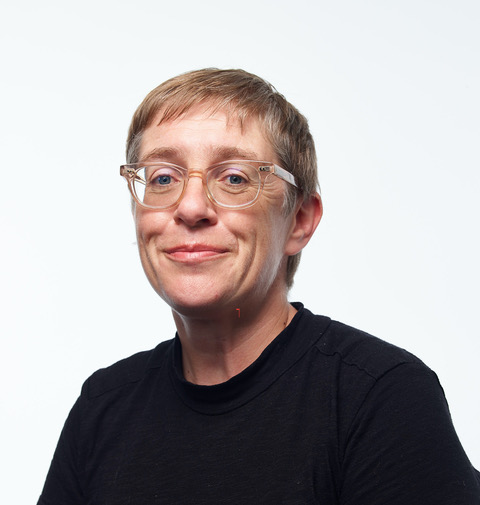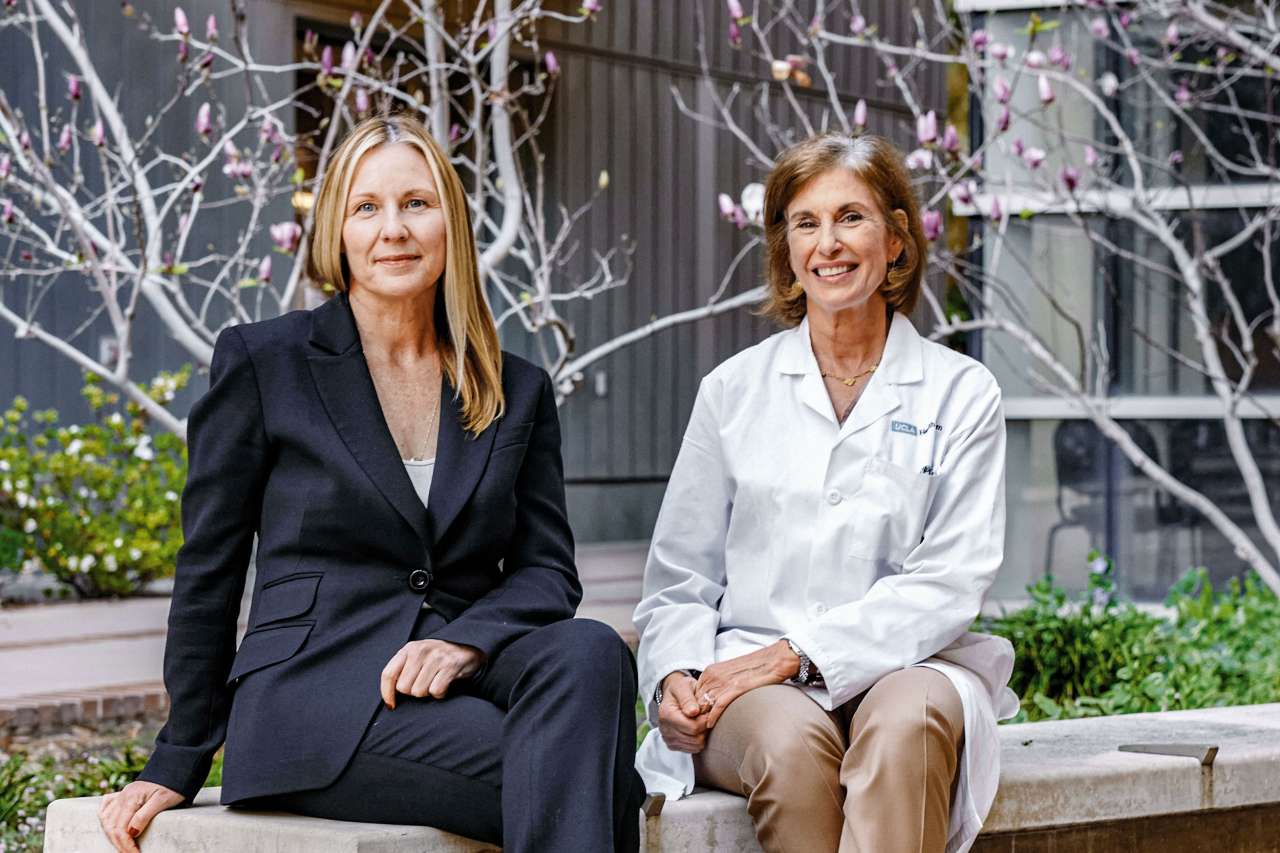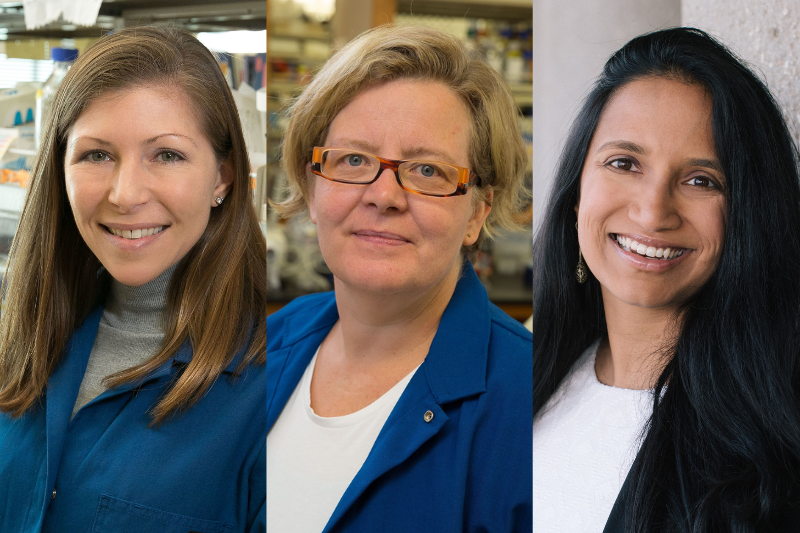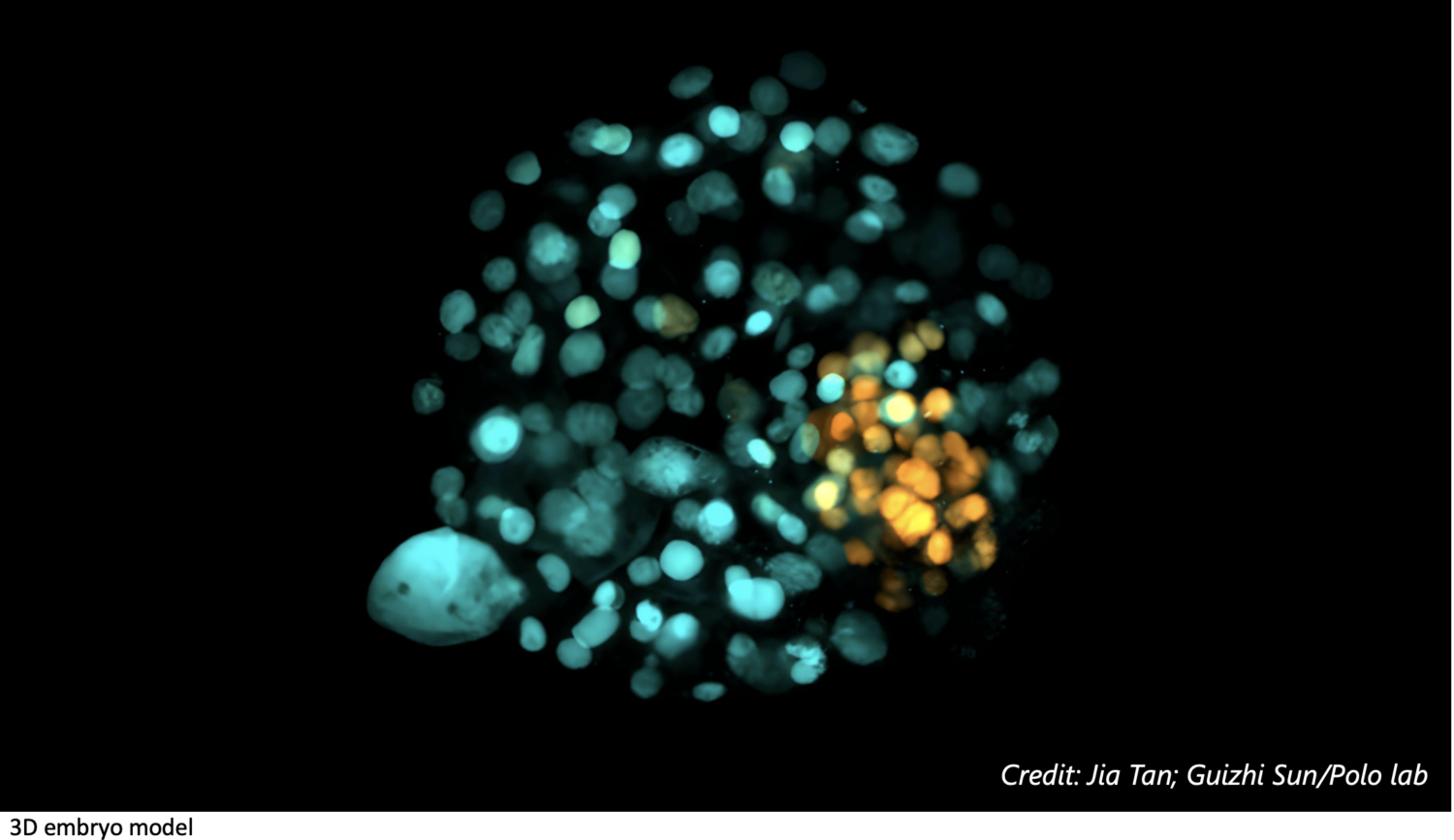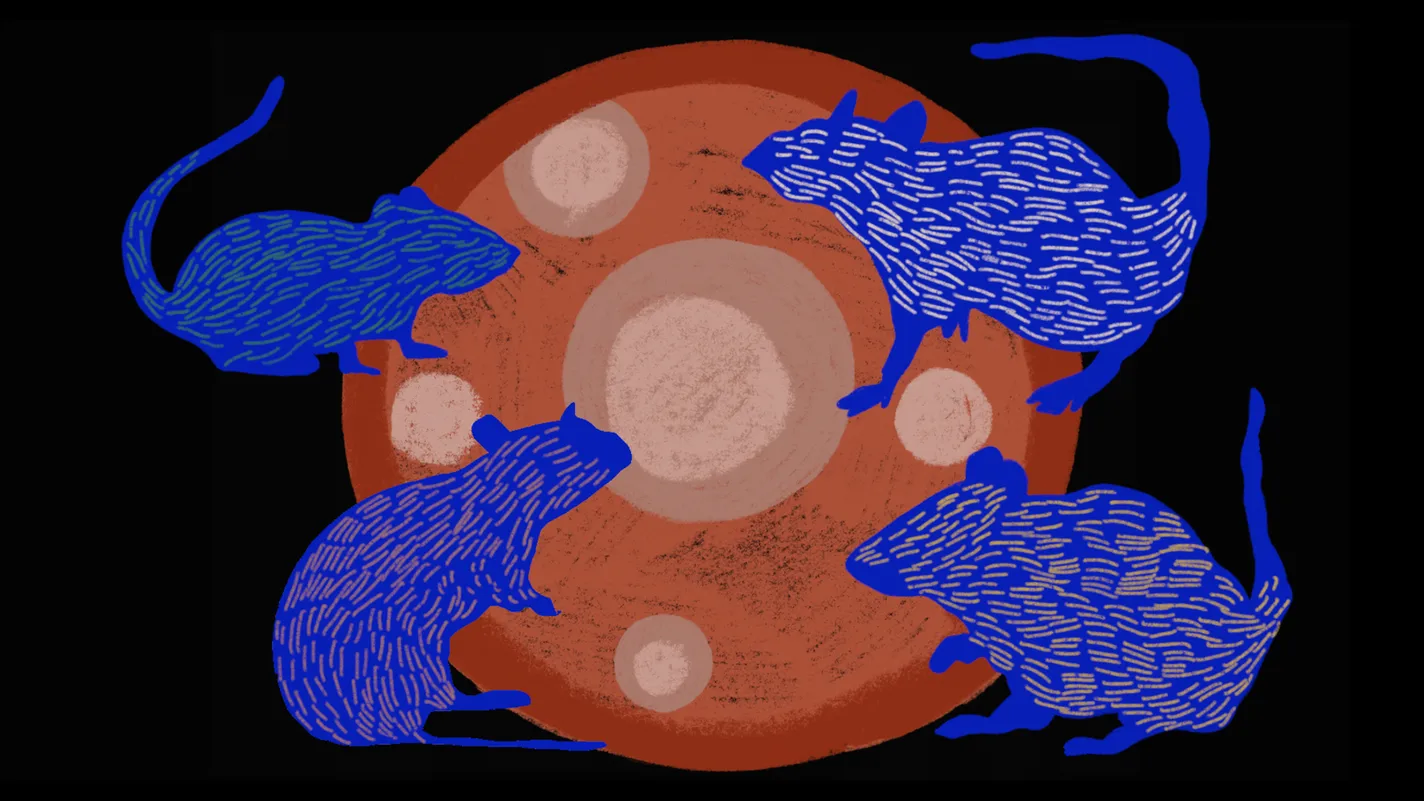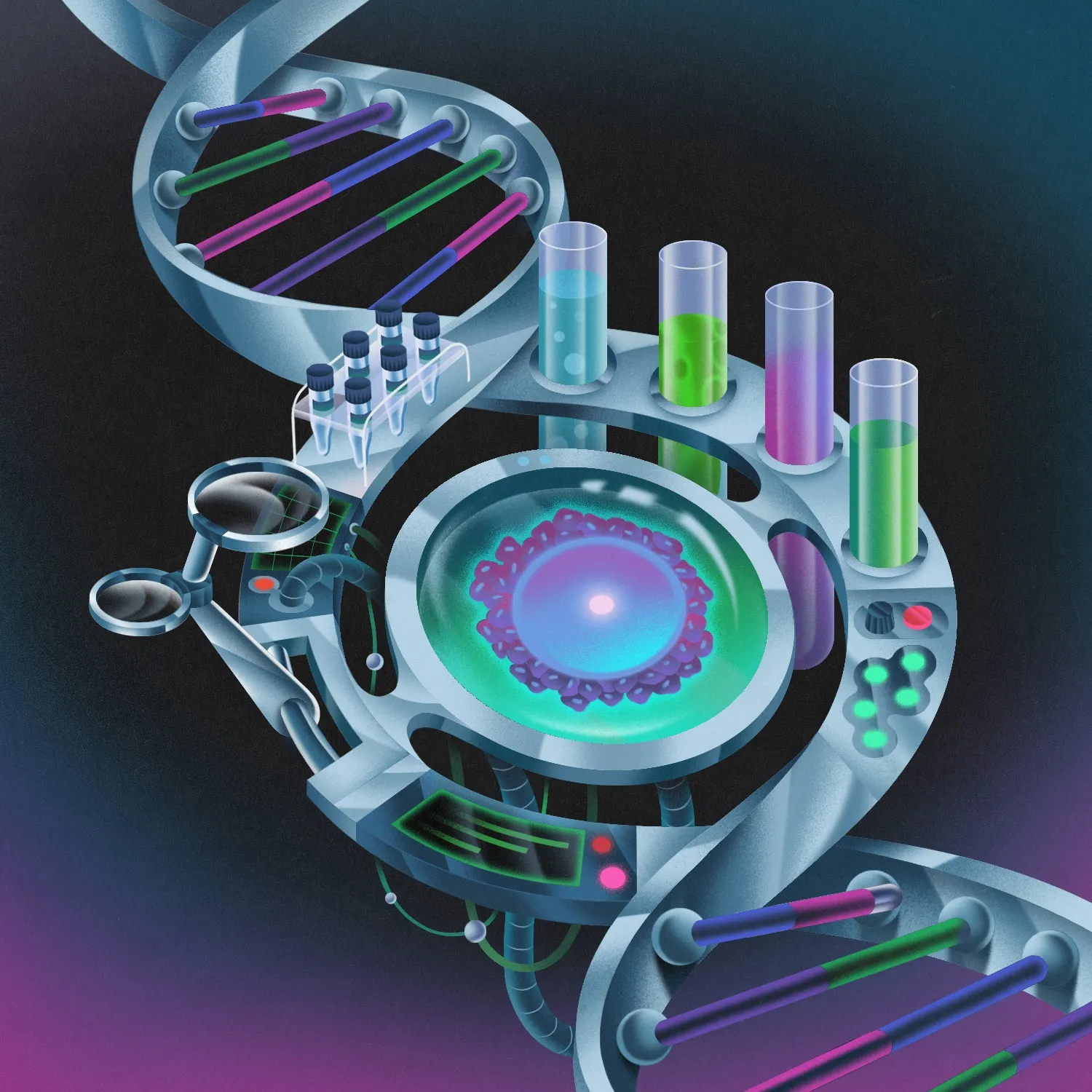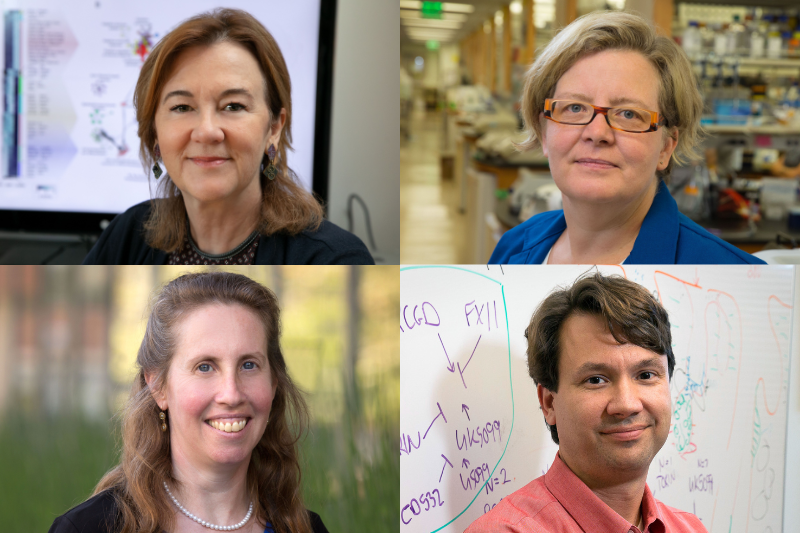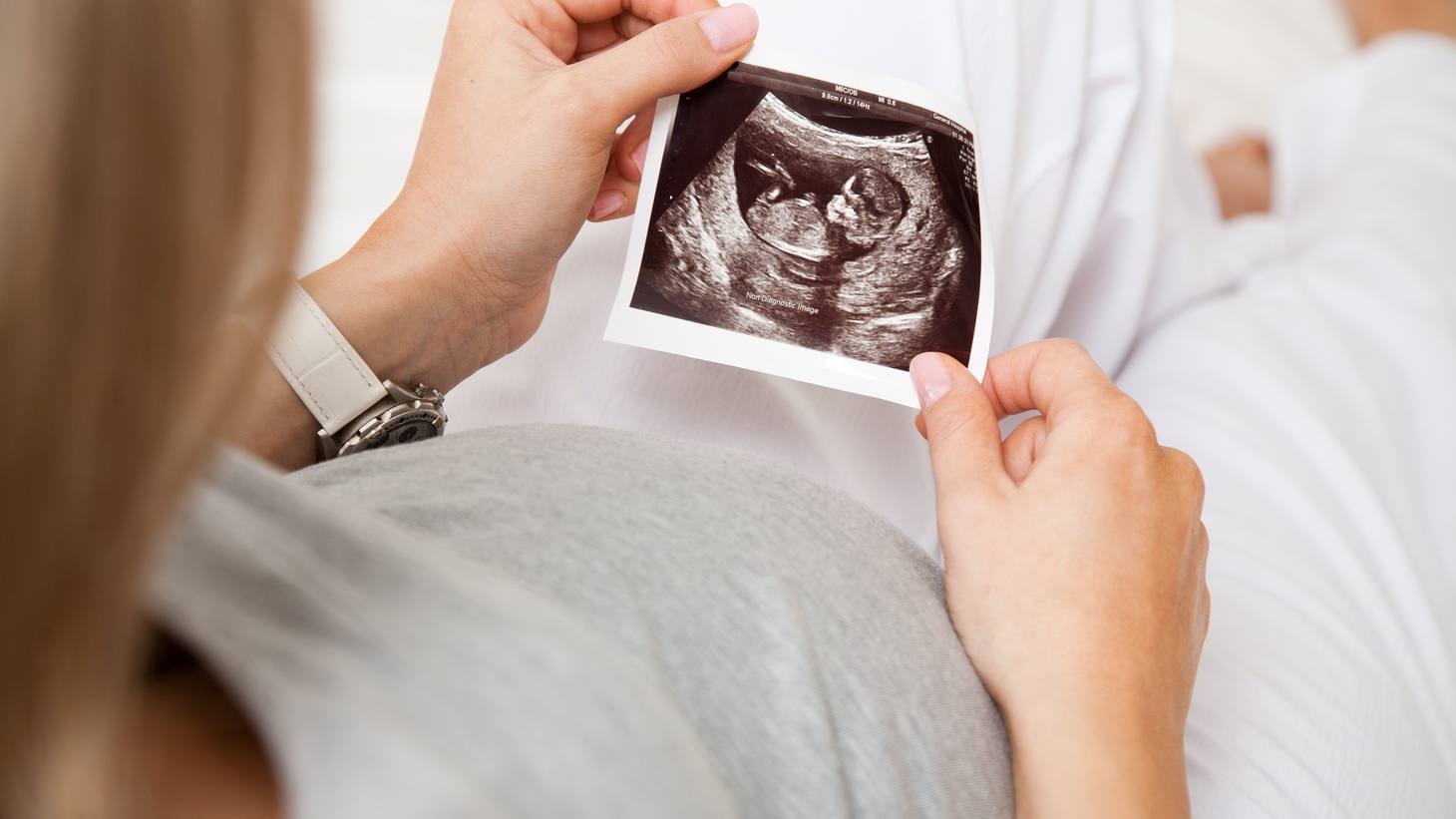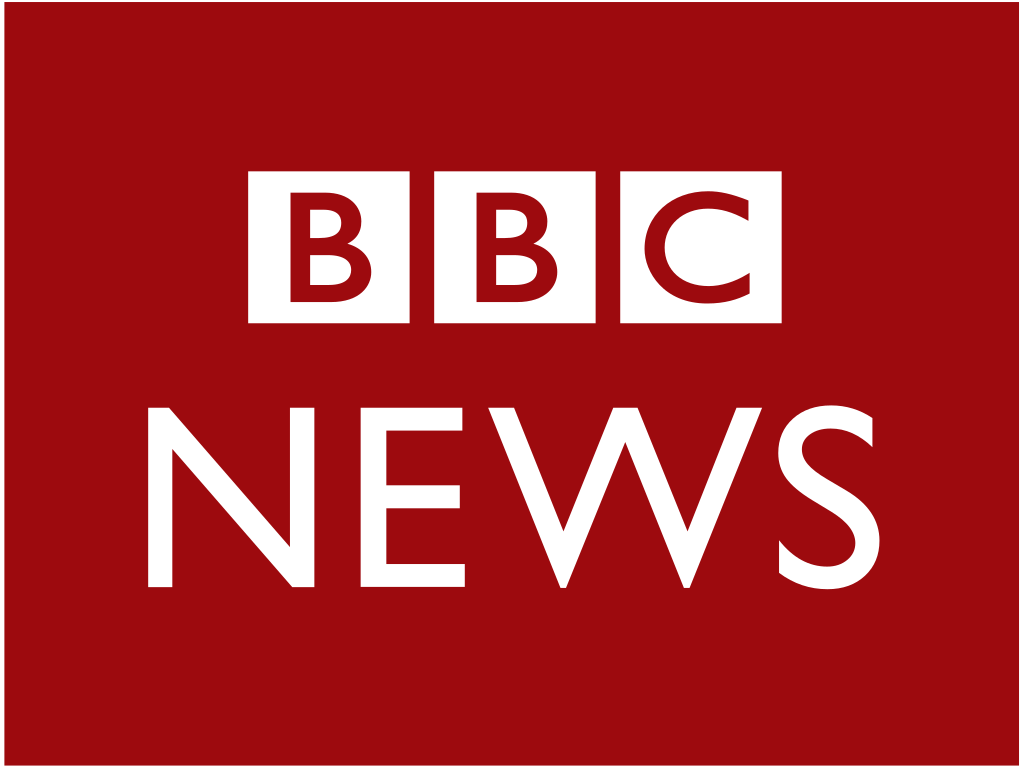By Stephanie Kiesow-Edoh
With summer upon us, the Center for Reproductive Science, Health and Education (CRSHE) is moving forward with our mission to make sure that important conversations around maternal and reproductive health continue. One way we are tackling this topic is through a focus on the intersection of art and science – two domains not commonly brought together.
In the Spring of 2023, we placed a call for UCLA student artists to create pieces representative of maternal and reproductive health, science and education. That Fall, a committee of UCLA students, staff, and faculty deliberated on a fantastic set of applications from talented artists utilizing a range of approaches from photography to acrylics. From these discussions, artist Saskia Baden, MFA (2023), was chosen as the winner. The first piece, Abyssal, is an installation of a large-scale photograph of a human placenta captured at the time of birth. This stunning piece measuring 16ft x 12ft was installed last month (June 2024) on the 4th floor of the Biomedical Research Sciences Building. Abyssal, part of Baden’s larger work titled Mother Skin, examines and compares the fluidity of water and the womb with an emphasis on the unknown.
In addition to this collaboration, CRSHE has made a substantial effort to foster the pipeline of students interested in entering the field of reproductive science through various educational events and activities meant to highlight the different ways that students can connect with reproductive science, and explore its impact on human health. For example, the Center recently hosted LA County Supervisor Holly J. Mitchell as part of their Distinguished Speaker Series to speak around the issues of black maternal health in the community as well as how policies are affecting the health of mothers and babies in Los Angeles. CRSHE also established a Career Development Series with the intent to bring in various professionals from the community (ranging from midwives to maternal mental health specialists to practicing scientists), in order to connect students with mentors from a range of fields and convey the diversity of career paths related to reproductive science and health.
Stay tuned for the installation of additional art and science works at CRSHE’s headquarters (4th floor of the Biomedical Sciences Research Building). We also invite you to a meet and greet with the artist Saskia Baden at an event that we will host this Fall. You can find more details by visiting our website (https://reprohealth.ucla.edu/), Instagram and X (@ucla_crshe), as well as LinkedIn.


